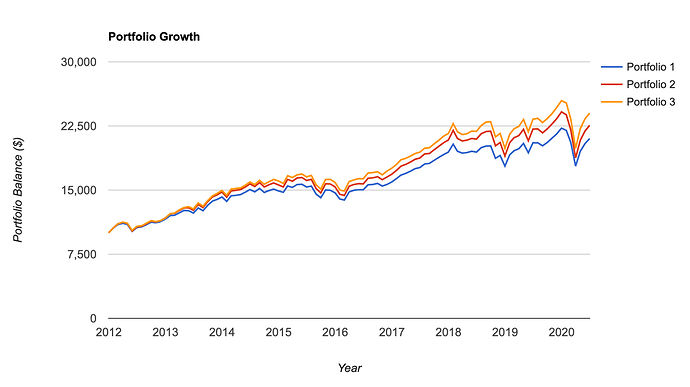Hello,
I am from a small country in Europe. We do not have a lot of options here, definitely no target date index funds. But I can open an account on InteractiveBrokers and buy seperately ETFs like VTI (Vanguard Total Stock Market), VXUS (Vanguard International Stock Market) and BND (Vanguard Bond Market), for which Jeremy has made posts on instagram so I’m clear regarding that. But my questions are :
-
A few month ago I sold a business that I had for many years and now have a pretty big amount of money (equivalent to about 950k in US dollars) and am 23 years old, so with that in mind how would you split that amount between the 3 ETFs (or between the 2, if you think that I can just ignore Bonds for now since I’m pretty young)?Also I am working still and doing just fine financially so I don’t need that money to live etc I just want to invest it and leave it there for decades hopefully and have it grow as something that I can always fall back on if (hopefully not) things ever get rough.
-
Would I need to re-balance it myself since obviously it wont do it itself like a target date index fund would? If yes, how often? And would that make a mess on the taxes (buying/selling ETFs to rebalance).
Thanks in advance.



 Noted.
Noted.
